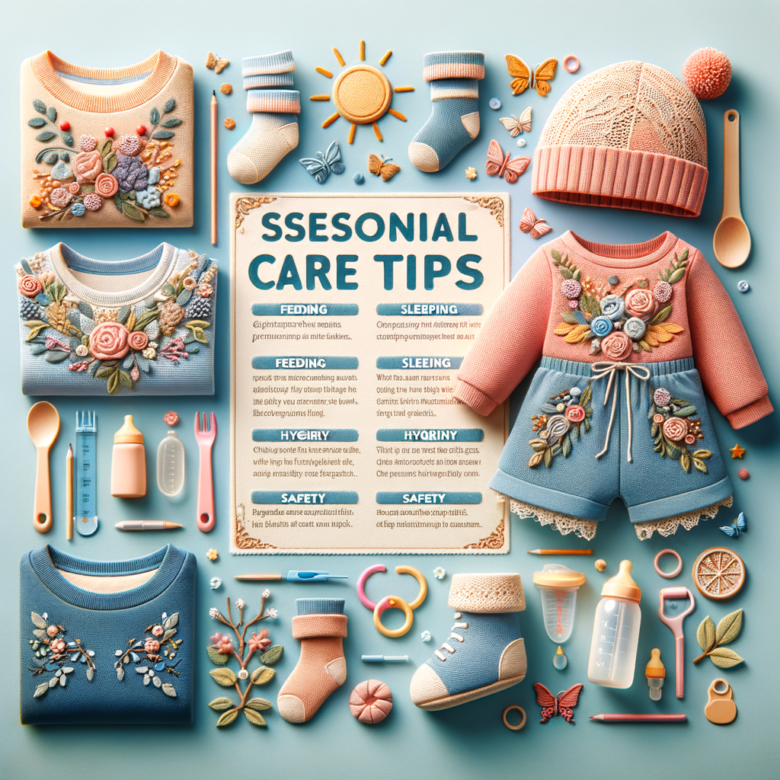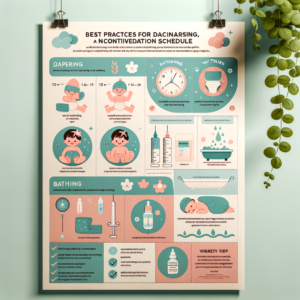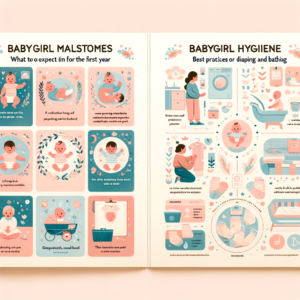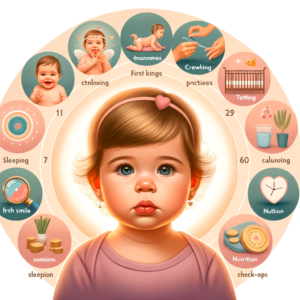Congratulations on your new babygirl! As a new parent, you’re embarking on an exciting journey filled with love, joy, and yes, a few challenges. This comprehensive guide will provide you with essential care tips to help you navigate the early days and months with your precious little one.
Understanding Your Newborn Babygirl
Before diving into specific care tips, it’s important to understand some basics about newborns:
- Newborns sleep a lot, typically 16-17 hours a day
- They need to eat frequently, usually every 2-3 hours
- Crying is their primary form of communication
- Every baby develops at her own pace
Feeding Your Babygirl
Whether you’re breastfeeding or formula-feeding, nutrition is crucial for your babygirl’s growth and development.
Breastfeeding Tips
- Find a comfortable position
- Try different holds to see what works best for you and your baby
- Use pillows for support if needed
- Ensure proper latch
- Baby’s mouth should cover most of the areola, not just the nipple
- Listen for swallowing sounds
- Feed on demand
- Newborns typically need to eat every 2-3 hours
- Look for hunger cues like rooting or sucking on fists
Formula Feeding Tips
- Choose the right formula
- Consult with your pediatrician about the best option for your baby
- Follow preparation instructions carefully
- Sterilize bottles and nipples
- Especially important in the first 3 months
- Hold baby semi-upright while feeding
- This helps prevent ear infections and choking
Diapering Your Babygirl
Expect to change 8-10 diapers a day in the early weeks.
- Gather supplies before starting
- Diapers, wipes, diaper cream, clean clothes if needed
- Clean thoroughly
- Wipe from front to back to prevent urinary tract infections
- Allow some diaper-free time
- This can help prevent diaper rash
- Check for proper fit
- Diapers should be snug but not tight
Bathing Your Babygirl
Newborns don’t need daily baths; 2-3 times a week is usually sufficient.
- Prepare everything before starting
- Gather towel, washcloth, baby soap, clean diaper and clothes
- Use warm (not hot) water
- Test the temperature with your elbow or wrist
- Support your baby’s head and neck
- Never leave your baby unattended in the bath
- Gently clean from top to bottom
- Pay special attention to skin folds
Sleep Safety for Your Babygirl
Creating a safe sleep environment is crucial.
- Always place baby on her back to sleep
- This reduces the risk of Sudden Infant Death Syndrome (SIDS)
- Use a firm mattress in a safety-approved crib
- Avoid soft bedding, pillows, and toys in the crib
- Keep the room at a comfortable temperature
- Typically between 68-72°F (20-22°C)
- Consider room-sharing for the first 6-12 months
- This can reduce the risk of SIDS and make nighttime feedings easier
Soothing Your Babygirl
All babies cry, but there are ways to comfort your little one:
- Swaddling
- Wrapping your baby snugly can provide comfort
- White noise
- A fan or white noise machine can be soothing
- Gentle motion
- Rocking or swaying can help calm your baby
- Pacifiers
- Can provide comfort, but wait until breastfeeding is well-established if nursing
Health and Safety
Keeping your babygirl healthy and safe is a top priority.
- Regular check-ups
- Follow your pediatrician’s recommended schedule for well-baby visits
- Tummy time
- Supervised tummy time when baby is awake helps develop neck and shoulder muscles
- Car seat safety
- Always use a properly installed, age-appropriate car seat
- Babyproofing
- Start early, even before your baby is mobile
Bonding with Your Babygirl
Building a strong bond is crucial for your baby’s emotional development.
- Skin-to-skin contact
- Promotes bonding and can help regulate baby’s body temperature and breathing
- Talk and sing to your baby
- This helps with language development
- Respond to your baby’s cues
- This builds trust and security
- Make eye contact
- Babies love looking at faces, especially their parents’
Self-Care for New Parents
Remember, taking care of yourself is crucial to taking good care of your baby.
- Sleep when the baby sleeps
- Rest is crucial for your well-being
- Accept help from family and friends
- Don’t be afraid to ask for support
- Maintain a healthy diet
- Good nutrition helps with recovery and energy levels
- Take breaks
- Even short periods of self-care can make a big difference
Frequently Asked Questions
Q: How often should I feed my newborn babygirl? A: Newborns typically need to eat every 2-3 hours, or 8-12 times in 24 hours.
Q: When should I start tummy time? A: You can start supervised tummy time as early as the first week, for short periods (3-5 minutes) a few times a day.
Q: How do I know if my babygirl is getting enough milk? A: Signs include steady weight gain, 6-8 wet diapers a day, and seeming satisfied after feeds.
Q: When should I call the doctor? A: Call if your baby has a fever, is unusually fussy, isn’t eating well, or if you have any concerns about her health or behavior.
Q: How can I cope with sleep deprivation? A: Try to sleep when your baby sleeps, share night duties with your partner if possible, and don’t hesitate to ask for help from family or friends.
Conclusion
Caring for a newborn babygirl can be both rewarding and challenging. Remember, every baby is unique, and it may take time to find what works best for you and your little one. Trust your instincts, but don’t hesitate to seek advice from your pediatrician or experienced parents when needed.
The most important things you can provide for your babygirl are love, attention, and care. As you navigate these early days and weeks, know that you’re doing an amazing job. Cherish these precious moments with your little one – they grow up so fast!
Remember, parenting is a learning process. Be patient with yourself and your baby as you both adjust to this new life together. With time, you’ll become more confident in your parenting skills and find joy in watching your babygirl grow and thrive.



